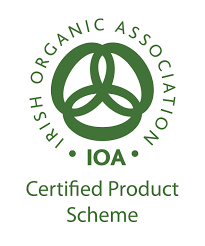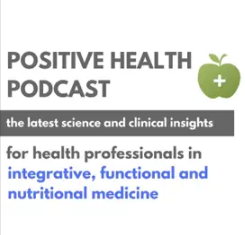
Nutrition and Lifestyle Interventions to Support POTS and Orthostatic Intolerance
March 14, 2025
Stress and Digestion
March 18, 2025PMS – It’s Not All in Your Head

Premenstrual Syndrome (PMS) is a tricky subject. It has been linked to over 150 different symptoms. For some the personality changes associated with this time of the month can be very severe. Indeed, women commonly describe a ‘Jekyll and Hyde’ personality change, in which they literally become a different person pre-menstrually and often feel like they are going to lose it if anybody upsets them or gets in their way.
PMS is not inevitable
For many PMS is widely accepted as unavoidable. The crux of the issue being that society holds a common misconception that all women become moody and tetchy during their ‘time of the month’. Historically labelled ‘the curse’ of womanhood, the actual truth is that PMS is not inevitable. No longer a mystery, premenstrual syndrome is now clearly understood as merely a symptom of hormonal and neurotransmitter imbalance and nothing more. An imbalance that can and should be corrected through a healthy diet, supplements, and a healthy lifestyle.
The symptoms of PMS are varied and can, in fact, include any physical or emotional symptom experienced in the two-week lead-up to a period. It is estimated that 85% of women display at least one symptom during their monthly cycles. For many these will be mild and unlikely to interfere with their daily routine or better judgement. Yet approximately 8 – 20% of women experience symptoms that meet the clinical definition of PMS and an even smaller number have a more severe form of the syndrome called premenstrual dysphoric disorder (PMDD). The good news is that just because you’re a woman doesn’t mean you have to live with these symptoms. Research now indicates that the suffering related to menstrual cycles is unnecessary and can be attenuated by addressing bad habits, improving your dietary intake, reducing exposure to environmental toxins and buffering stress.
Manage blood sugar
The most crucial dietary change you can make is to keep your blood-sugar levels steady: the higher your sugar intake (and caffeine) the more severe your symptoms are likely to be. Excess caffeine, sugar and refined carbohydrates which are all pretty devoid of nutrients and can exacerbate symptoms. They cause the release of adrenaline which blocks the uptake of the hormone progesterone in the second half of your cycle. If you suffer from PMS my advice is to cut out sugar and caffeine completely if you can. Caffeine and xanthine containing beverages such as cola, tea and chocolate are linked to breast tenderness. They are also central nervous system stimulants which can leave you feeling jittery and anxious.
Watch refined carbohydrates and alcohol
Too much bread and starchy foods which are often craved before a period, may make bloating worse and cause the IBS-like symptoms that are often experienced. Eliminating them completely may seem challenging, but the impact of this small change can be powerful. Many women in my clinic have seen a significant difference, really quickly in one or two cycles. Alcohol is an added problem which initially may feel like it is helping with anxiety but in the long run it makes it worse. Another small but compelling step is to make sure you eat every three hours and have high protein snacks between meals. This also prevents your blood-sugar levels from dropping and the subsequent release of adrenaline.
Dietary supports
The approach we use in clinic focusses as much on what to include in your diet, as it does on cutting out the usual suspects. A key strategy to buffer your body against the hormonal swings associated with PMS is to eat plenty of fresh fruit and vegetables, whole grain cereals, beans, peas, lentils nuts and seeds. Include greens – the darker green the better as they are rich in magnesium which we nickname ‘natures tranquilliser’.
Small daily portions of high fibre wholegrains like brown rice and oats can be very supportive as they provide fuel for your gut bacteria. Research shows that certain beneficial bacteria act as a cleaver in the gut, breaking down hormones for excretion. Whilst the fibre keeps you regular and helps your body to get rid of excess oestrogen, if high oestrogen levels are a problem. It is also helpful to include lots of essential fats from oily fish and nuts and seeds. The brain is 70% fat so without enough good fat all the nice brain ‘chemicals’ like serotonin can’t be utilised and symptoms of depression and anxiety are more likely.
Fluids are key
One week before before your expected menstrual period bump up your water intake. This helps flush out excess hormones and supports liver detoxification. Whilst omitting salt, red meats, processed foods during this time can help to curb bloating and water retention. Choosing a good quality dietary supplement can also be supportive. Medical research indicates certain nutrients such as vitamin B6, chromium and magnesium can be hugely beneficial when it comes to reducing PMS symptoms. Vitamin B6 plays a vital part in synthesizing certain neurotransmitters that control mood and behaviour. Chromium is especially important in controlling food cravings and it can be helpful for those women who get a pre-menstrual increase in appetite and crave food in general and especially sweet foods and chocolate. Magnesium is classed as ‘nature’s tranquilliser’ and is, therefore, vital in managing symptoms that relate to anxiety, tension, or irritability.
Don’t forget lifestyle
Addressing lifestyle factors is also key. High stress whether it be work or relationship can fuel the PMS particularly if the main symptoms are depression, anxiety and irritability. Lack of exercise is also a factor, as without it we don’t produce the feel good endorphins. Walking even 1/2 to 1 mile per day can be constructive. Exercise increases oxygen in the blood, which helps with nutrient absorption and efficient elimination of toxins from the body. It also helps to keep stress levels more stable. Stress management techniques are also known to be effective such as incorporating meditation/yoga type routines to relax the body and mind.
No one-size-fits-all
Whilst there are many positive steps you can take to support your hormonal balance PMS is a syndrome with many causes and the problem may not have one solution that fits every woman. It may be best to experiment with cleaning up your diet, addressing stress and practising exercise, whilst supporting yourself with appropriate supplementation. It is also important to visit your medical care provider to rule out an underlying medical condition that may be causing symptoms, such as abnormal thyroid function, endometriosis, or a genuine psychological condition such as clinical depression. Sound nutrition has a key role to play in supporting your hormone balance, so if in doubt reach out and seek guidance from an experienced nutritionist. Learning to rebalance your hormones can be truly liberating, as you kiss those dreaded monthly blues good bye.
This article was originally written by Nutritionist Sorcha Molloy for Galway Now. Sorcha operates Positive Nutrition Galway and offers online appointments servicing Limerick, Clare, Galway Mayo and Sligo.


